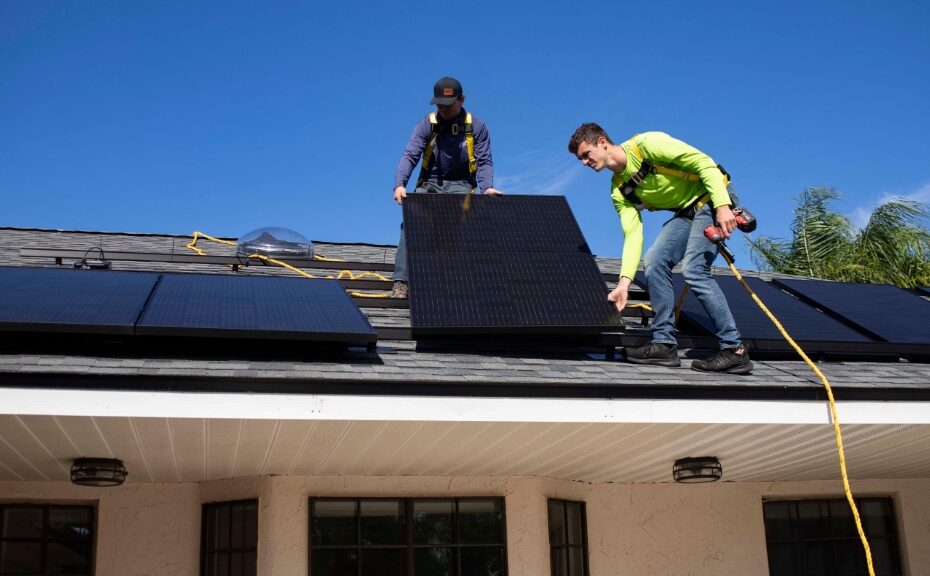There are many factors to consider when deciding to ‘Go Solar’, but one of the most important is whether you’re hiring a professional solar installer or trying to do it yourself (DIY). See a previous blog post about ‘What Should You Consider Before You Go Solar’. Companies are now developing more efficient photovoltaic panels that are easier to install, so homeowners can also buy their panels from retail stores like Home Depot, giving them an option to take the DIY route.
However, it is important to be aware of the risks involved in solar installation, so research beforehand is important. If you do not have the budget or the DIY skills, hiring a professional solar installer is the best option. See a previous blog post about ‘Choosing The Right Solar Installation Company’. A professional solar installer can design, install, and maintain your solar system correctly, ensuring you get the most out of your investment. Ultimately, the decision is a personal one; however, it is a good idea to consider the pros and cons of each option as discussed below:
Professional Solar Installation
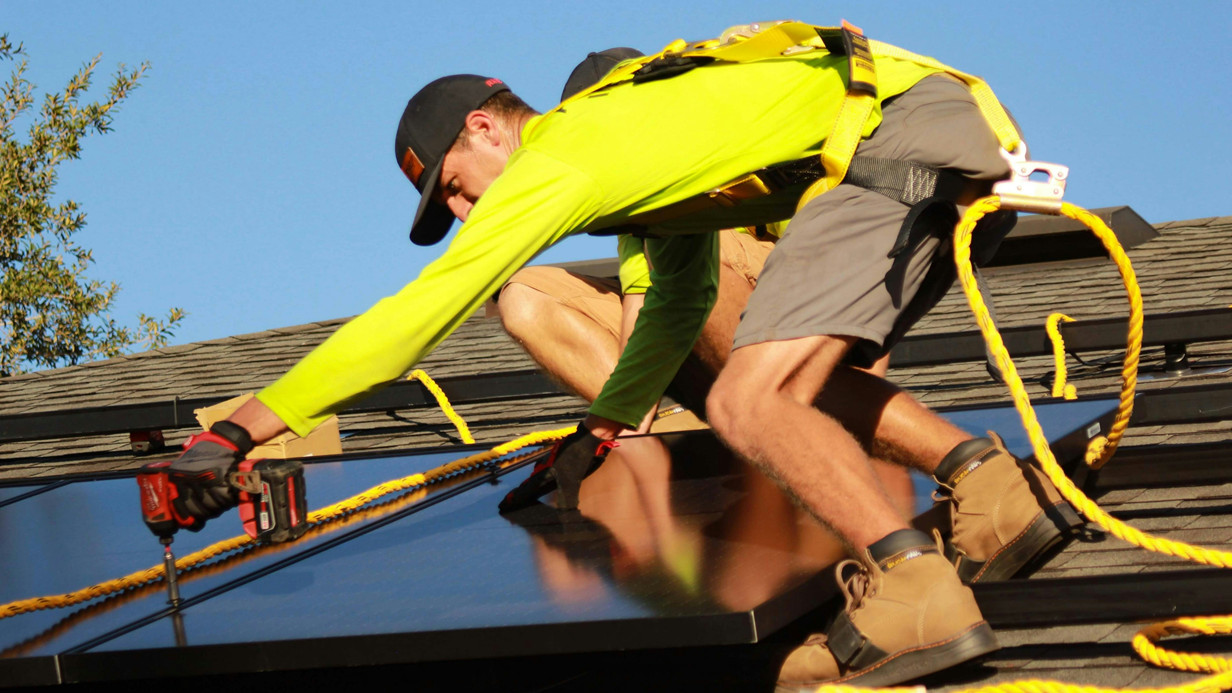
Pros
- Expertise and Experience:
- Professional installers have extensive training and experience, ensuring the system is installed correctly and efficiently. This reduces the risk of errors affecting system performance and safety. Installers should have industry-standard certifications like those awarded through organizations such as the North American Board of Certified Energy Practitioners (NABCEP), widely recognized as the highest standard among renewable energy system installers.
- Permitting and Paperwork:
- Professionals handle all the necessary permits and paperwork, including applications for incentives and interconnection agreements with the utility company. Before homeowners can install a solar energy system in Pennsylvania and begin producing power, they must obtain the necessary permits and interconnection approvals from their local municipality and utility company. This process often takes 6 to 10 weeks, depending on the utility (PECO, Met-Ed, and PPL), the municipality, and the time of year (sometimes they are more backed up than others).
- Quality Assurance:
- Reputable installers often provide warranties on both the equipment and the installation work. This ensures that any issues arising from installation errors are covered without additional cost to the homeowner. Professional installers are authorized to install solar panels according to manufacturer specifications, ensuring that warranties remain valid and homeowners receive the necessary support and assistance in case of any issues. EnergySage provides more information about what to know about solar panel warranties.
- Safety:
- Professional installers are trained to handle high-voltage equipment safely, reducing the risk of injury or property damage. There are many safety concerns that properly trained personnel have experience with, including trip & fall hazards, electrical hazards, strains and sprains, and heat or cold weather hazards.
- System Optimization:
- Professionals can design and optimize the system to maximize energy production, taking into account factors like roof orientation, shading, and local climate conditions. There are a number of tools available to them through specialized software to map roof potential, as listed by the Solar Energy Technologies Office (SETO).
Cons
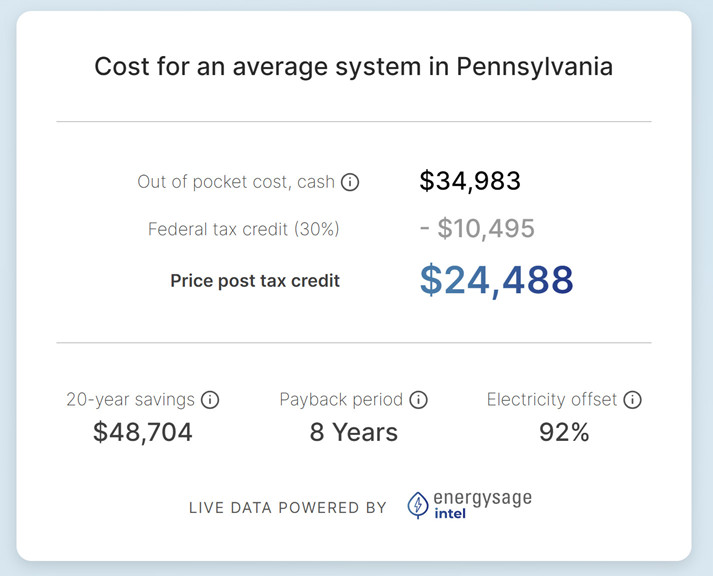
- Higher Initial Cost:
- Professional installation typically costs more upfront compared to a DIY approach. However, this cost can be offset by the long-term benefits and warranties provided. There are also financial incentives and loan programs available to offset the costs. See our previous blog post on ‘Financial Options and Incentives For Installing Solar Systems’. The cost of an average solar energy system in Pennsylvania, after the federal tax credit of 30%, is $24,488.
- Scheduling and Wait Times:
- Depending on demand and time of year, there can be a waiting period for scheduling a solar installation, which might delay the project. The permitting process can take weeks to months, depending on local authorities.
Do-It-Yourself (DIY) Solar Installation
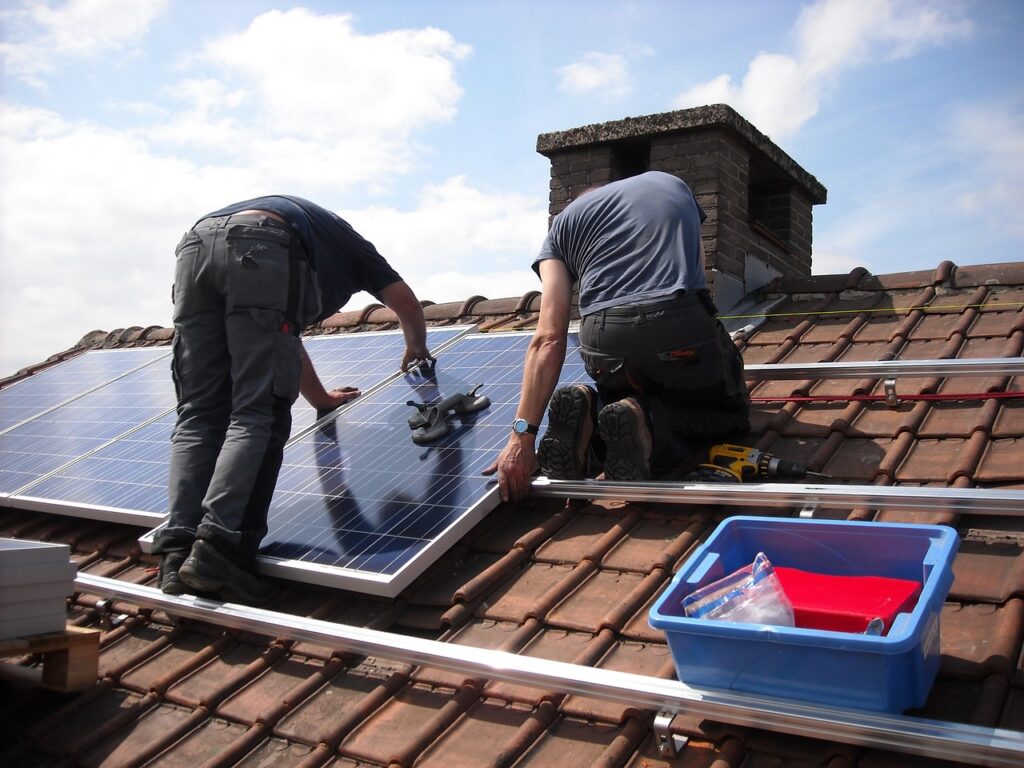
Pros
- Cost Savings:
- Installing the system yourself can save a significant amount on labor costs. This can make solar power more affordable, especially for smaller systems. A June 2023 report by consulting firm Wood Mackenzie for the SEIA reveals nearly half of the cost of an installed “turnkey” solar system goes to the installer’s overhead, customer acquisition costs and labor. Labor is the least of those three categories. This means that installing solar panels yourself could save you almost 50 percent off the cost of using a big solar company.
- Learning Experience:
- For those with a technical background or interest in renewable energy, installing your own system can be a valuable learning experience. However, DIYers aspiring to install solar panels should consider enrolling in vocational training programs specifically designed for solar panel installation. DIYers should get a comprehensive education on solar panel technology, installation techniques, electrical systems, and safety protocols.
- Flexibility:
- DIY installation allows you to work on your own schedule and pace, without having to coordinate with a professional installation company.
Cons
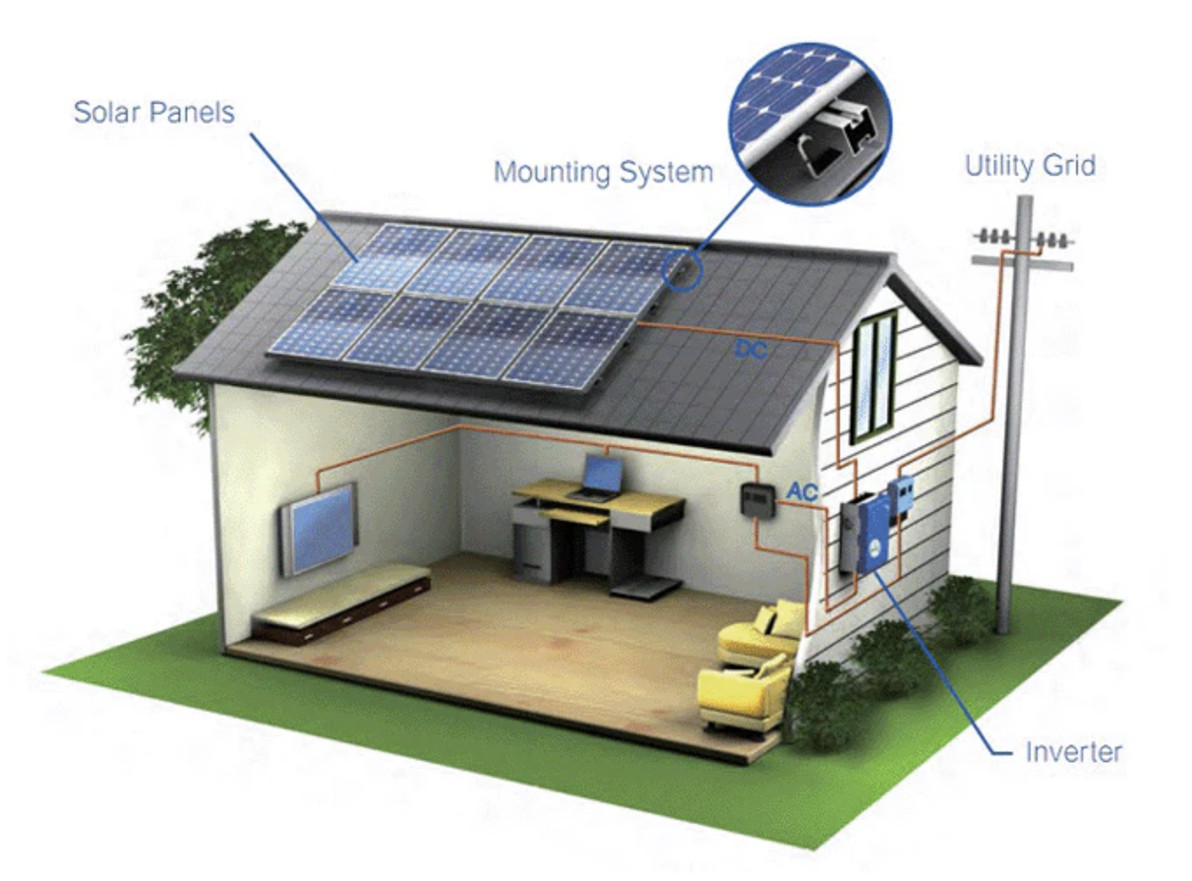
- Complexity and Knowledge Requirement:
- Solar installation involves complex electrical work that requires a good understanding of electrical systems, local building codes, and safety protocols. Mistakes can be costly and dangerous. Some of the skills necessary to do this kind of work include electrical and technical expertise, knowledge of proper safety practices, attention to detail, problem-solving, time management, and good physical fitness.
- Permitting and Paperwork:
- Navigating the permitting process and ensuring compliance with local regulations can be challenging and time-consuming for DIY installers. For Pennsylvania, the Department Of Environmental Protection has a Solar Energy resources page with regulatory information to review.
- Warranty Issues:
- Many solar panel manufacturers offer warranties that might be voided if the system is not installed by a certified professional. This can result in higher long-term costs if repairs or replacements are needed. Warranties for solar panels can vary by manufacturer and type of panel. Choosing a solar panel brand depends on several factors including cost, efficiency, power output, performance, and warranty. Not knowing which panels are better quality affects not just their warranties but also their possible energy efficiency.
- Safety Risks:
- Working on roofs and with high-voltage electrical systems poses significant safety risks. Professionals are trained to handle these safely, whereas DIY installers might not be. Electrical hazards can come in many forms including shock/electrocution from live equipment and utilities or thermal injuries from heated panels. Proper precautions should be taken where all of the necessary PPE is being worn.
- Potential for Lower Efficiency:
- Without professional optimization, a DIY-installed system might not perform as efficiently, reducing potential energy savings. Professional installations usually include more sophisticated software and hardware monitoring systems. Ideally, homeowners should have completed a home energy audit to assess how to maximize their use of energy and better estimate cost savings.
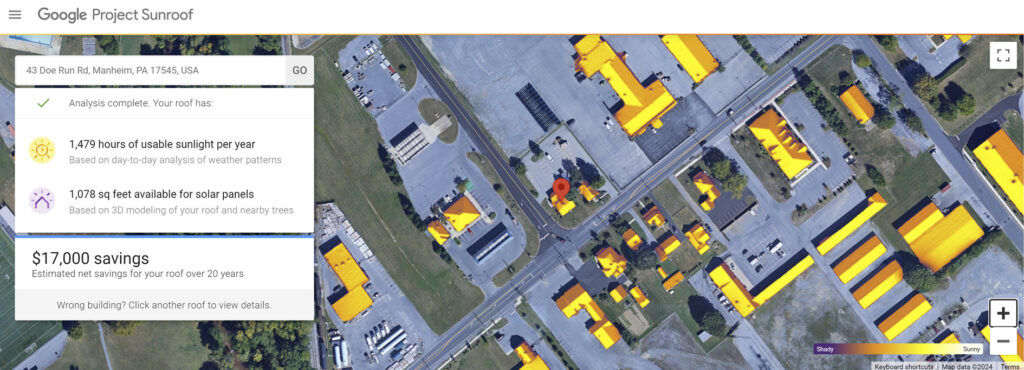
Choosing between professional solar installation and a DIY approach depends on your budget, technical skills, timeline, knowledge of local regulations, and comfort with handling complex electrical systems. Professional installation offers peace of mind, quality assurance, and long-term reliability, while DIY installation can save on upfront costs but comes with significant challenges and risks. Professional installation is the safer and more reliable option for most homeowners, especially those without a strong background in electrical work. According to the Department of Energy (DOE) “Right now, the best way to install solar is through a qualified professional who holds a certification to do so and works with high-quality solar panels. The industry-standard certification is awarded through the North American Board of Certified Energy Practitioners (NABCEP).”
